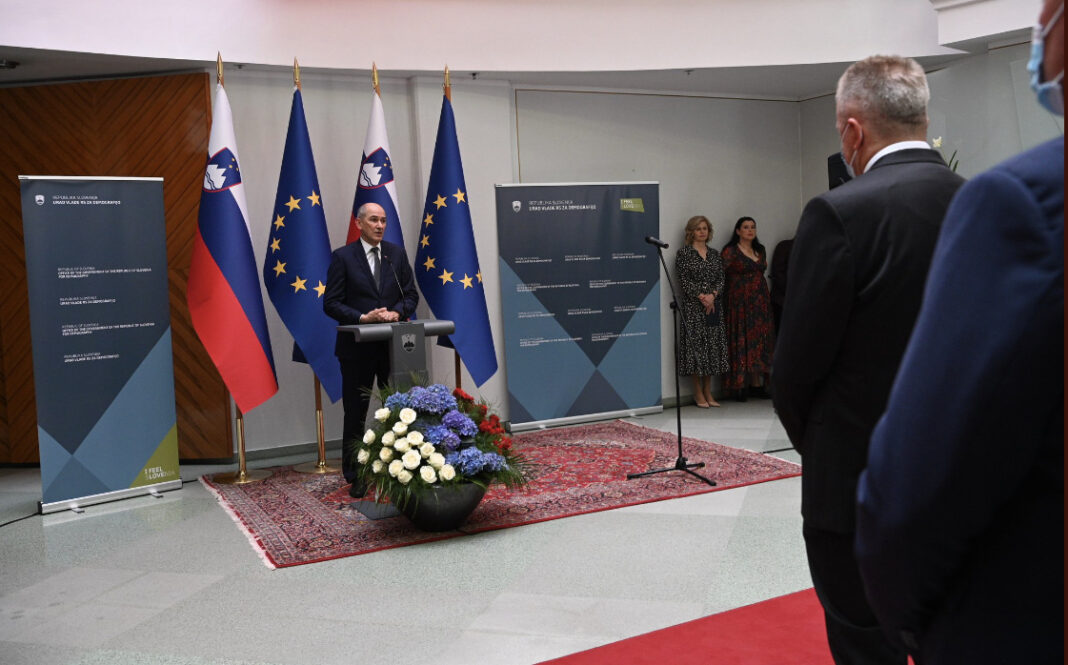By: C.R.
Prime Minister Janez Janša attended the opening ceremony of the Office of the Government of the Republic of Slovenia for Demography. The Prime Minister also addressed participants.
He introduced some statistical data and said that more than 35,000 children were born in Slovenia in 1950, but in recent years this number has fallen below 20,000. “If Slovenia did not have demographic problems, then we would not need a Government Office for Demography. We have a strategic problem that has been neglected for a long time and cannot be solved overnight, not even in a few years.” He said that we need a systemic approach that coordinates various policies: development, social and many others, and that the office will coordinate all those tasks that will ensure that there will be between 20,000 and 30,000 births a year in Slovenia. He said that the excuse that our way of life no longer allows this is not true. “There are countries that come from the same civilisation, have a similar culture, but these trends have changed a lot lately.”
In his speech, the Prime Minister said that it is necessary to change the mentality in the head and the material conditions for radical changes to take place. He reminded that according to European statistics, Slovenian women are the busiest in Europe, which means that Slovenia has the most full-time employed mothers. Additional negative factors are the occupancy of nursing homes and the lack of vacancies in kindergartens. “That is why we have launched an investment cycle in the last two years that meets the needs of all generations. We are building kindergartens, schools, and homes for the elderly. There are over 2,000 projects underway in Slovenia, 1,000 of which are key, which will also affect the quality of life, on which demographics also depend.” In his speech, the Prime Minister reminded of some already established family policy measures, namely: 500 euros of one-time solidarity allowance for new-borns, free kindergarten for second and third children, increase of parental allowance, increase of childbirth allowance and others. He said that this is just the beginning, that significant investment funds are needed, which will also be provided from the Recovery and Resilience Fund.
In his speech, the Prime Minister emphasised the importance of the Government Office for Demography operating in Maribor. “Instead of promoting the development of other regions in recent years, our development policy has been unbridled. Where there was already so much, even more went. We are turning this around with this investment cycle.” For this to be realistic, several infrastructure projects, the third development axis and all the others that have a long beard and are finally being implemented also need to be completed. He emphasised that the centre was also being helped by decentralisation and the relocation of state bodies to other cities in Slovenia. “Today, Ljubljana is suffocating in traffic and housing costliness. Development policy must go the other way. In Slovenia, we are feeling the consequences of centralisation and demographics are also bearing the consequences, because it matters where you are born.”
In his speech, the Prime Minister thanked the coalition partners, the General Secretariat of the Government for carrying out all the necessary procedures and those who will be employed in the Office. “I believe that in the coming years we will send many more after this swallow, so that the result will be a higher birth rate and a higher quality of life in Slovenia.”

